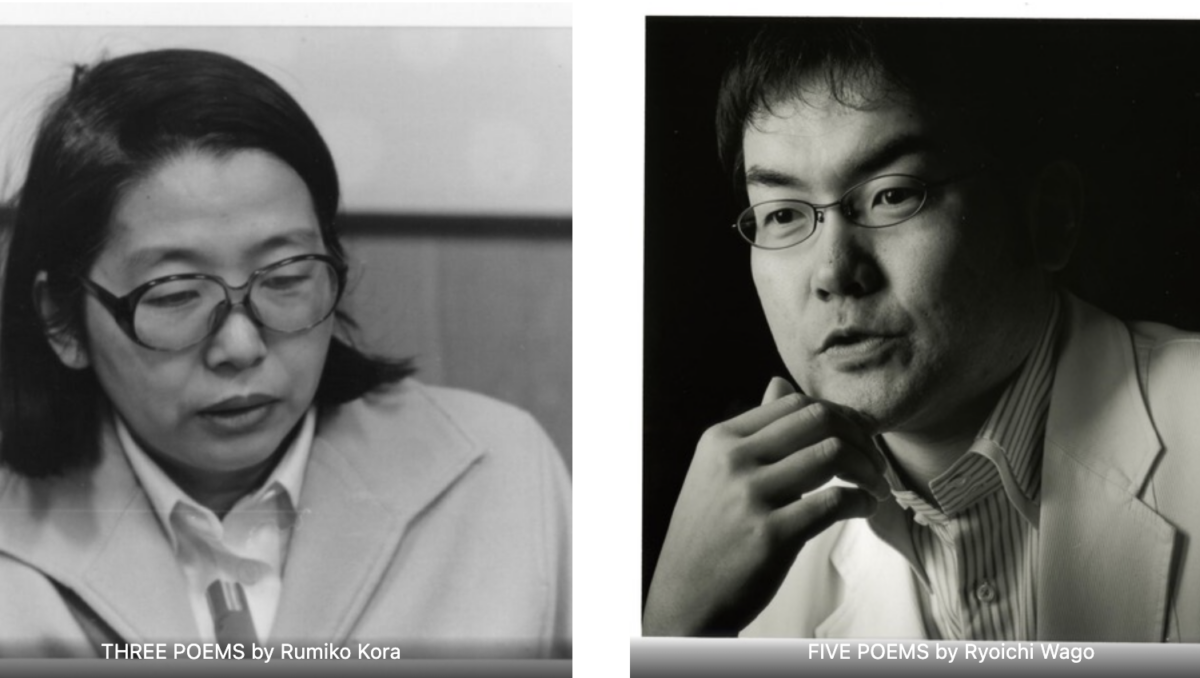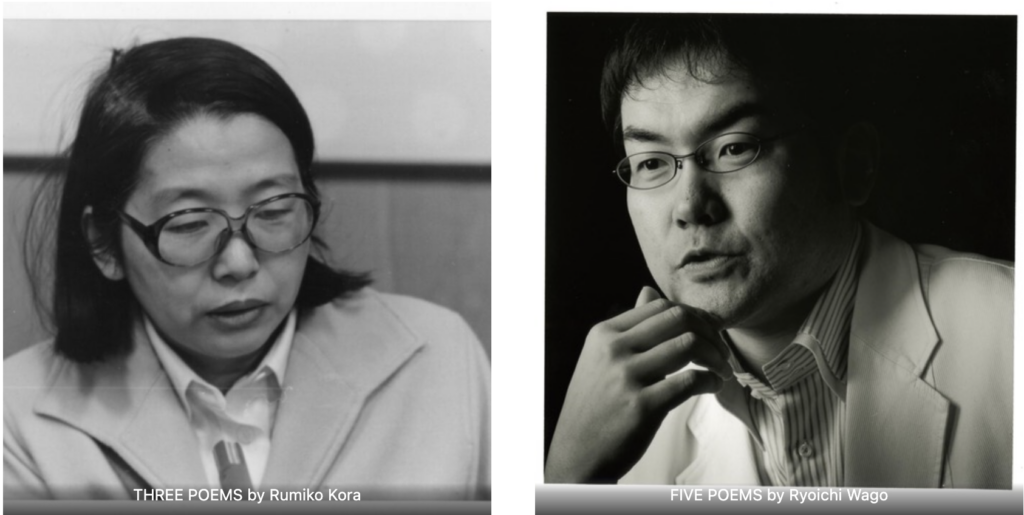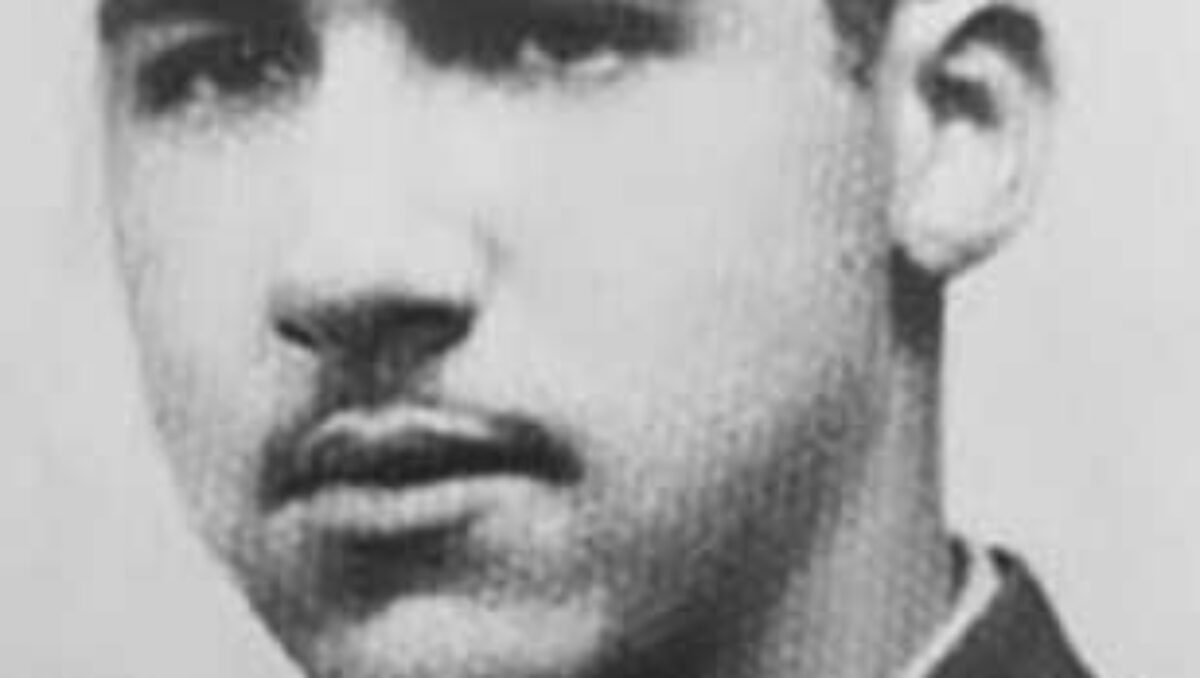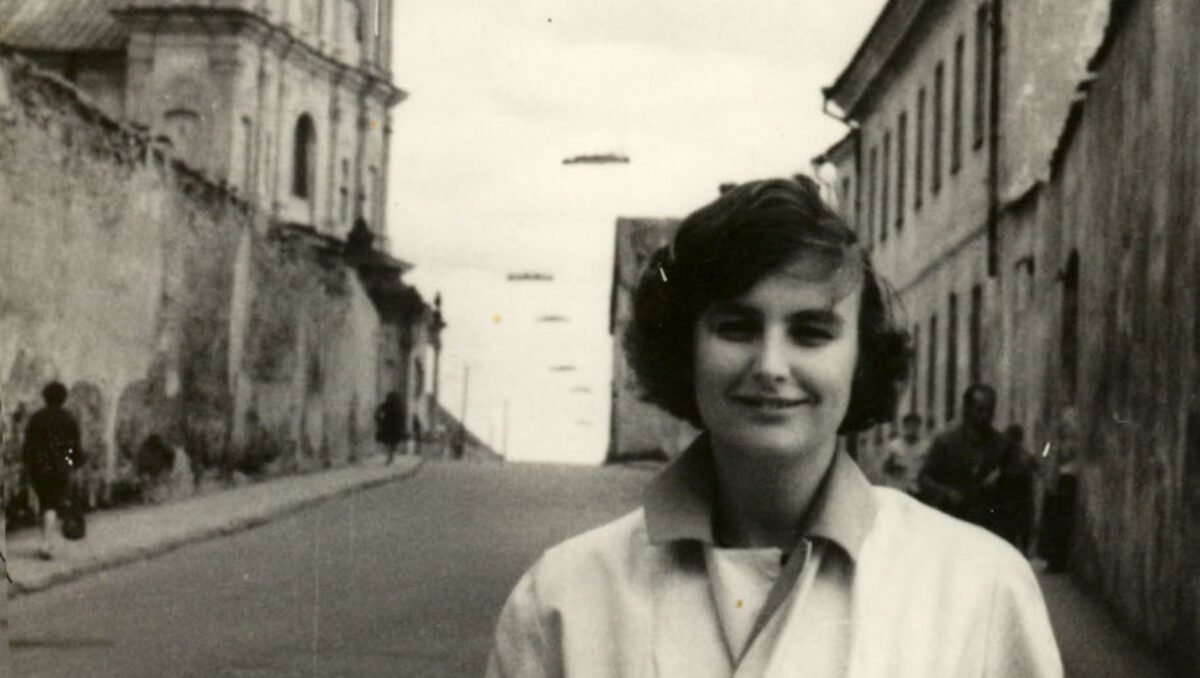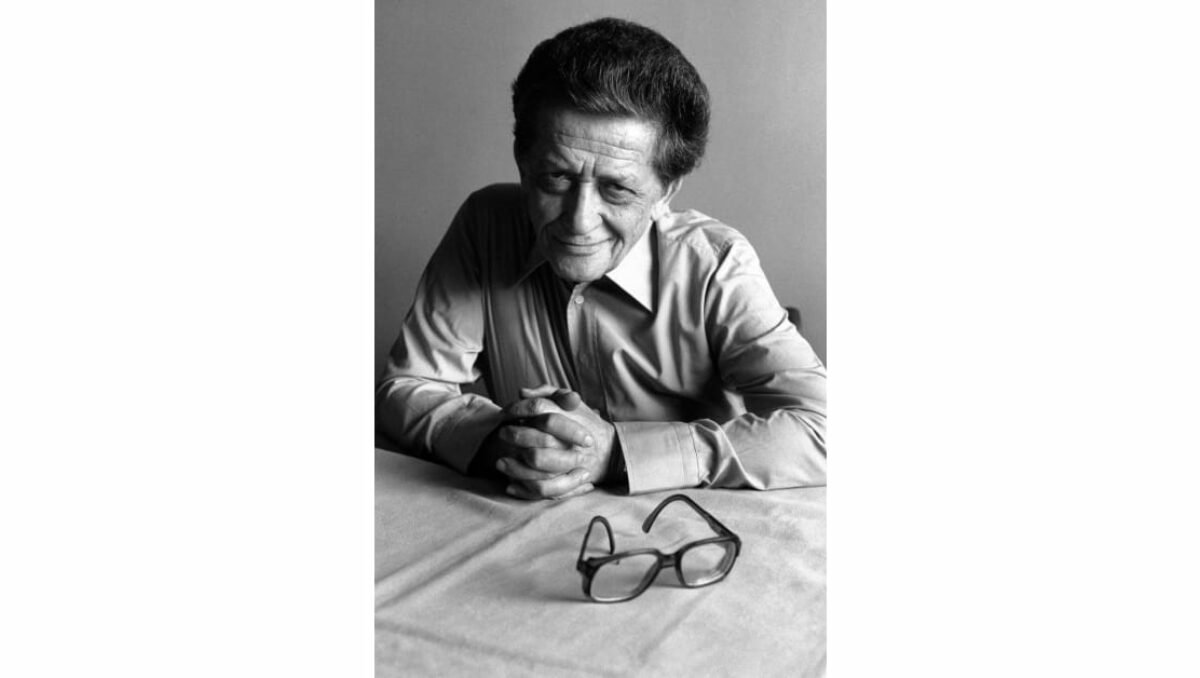URGENT: NEWS OF THE DEATH OF HIBA ABU NADA by João Melo, trans. G. Holleran
Excuse my urgency, oh right-thinking beings
especially you translucent
and self-referential poets,
but one of our sisters,
the Palestinian poet Hiba Abu Nada,
has just died in Gaza under the shrapnel of a benevolent bomb,
sent by another God,
different from the one she spoke with
every day.
I hesitated to convey this fateful news
so hastily. Perhaps I should wait
for the leaden grey smoke from the bomb that killed her to dissipate,
while she, surely,
scrutinized the sky for a sliver of light and
maybe even
the last birds.
Or, more convenient yet
it’d be better to say nothing,
until today’s hegemonic oracles,
like all oracles,
circulate an official statement
denying it as usual
without any doubts
or uncomfortable questions.
But when I read
the last words of Hiba Abu Nada before she died,
I was moved to spread this news,
before her banner could be censored
by those who defend selective liberty:
“If we die, know that we are content and steadfast,
and convey on our behalf that we are people of truth!”
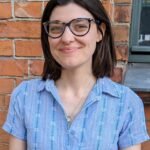 Grace Holleran translates literature from Portuguese to English. A PhD candidate in Luso-Afro-Brazilian Studies & Theory at the University of Massachusetts Dartmouth, Grace holds a Distinguished Doctoral Fellowship with the Center for Portuguese Studies & Culture and Tagus Press. Grace’s research, which has been supported by a FLAD Portuguese Archives Grant, deals with translation and activism in the early Portuguese lesbian press. An editor of Barricade: A Journal of Antifascism & Translation, Grace’s translations of Brazilian, Portuguese, and Angolan authors have been published in Brittle Paper, Gávea-Brown, The Shoutflower, and others.
Grace Holleran translates literature from Portuguese to English. A PhD candidate in Luso-Afro-Brazilian Studies & Theory at the University of Massachusetts Dartmouth, Grace holds a Distinguished Doctoral Fellowship with the Center for Portuguese Studies & Culture and Tagus Press. Grace’s research, which has been supported by a FLAD Portuguese Archives Grant, deals with translation and activism in the early Portuguese lesbian press. An editor of Barricade: A Journal of Antifascism & Translation, Grace’s translations of Brazilian, Portuguese, and Angolan authors have been published in Brittle Paper, Gávea-Brown, The Shoutflower, and others.
- Published in Featured Poetry, Poetry, Translation
FOUR POEMS by Olivia Elias, trans. Jérémy Victor Robert
Day 21, Words Are Too Poor, October 28, 2023
words are too poor but I have only them
my only wealth
empty my hands & so great the sufferings
here again I press my arms around my chest
here again I get into this old habit of covering the page with little
squares filled with black ink
the little squares of our erasure
/
I write what I see said Etel Adnan* who knew a lot about
mountains’ strength as well as Catastrophe
I also know the power of this Mount facing the sea
Carmel of my very early days Mount Fuji of absence
& denial around which I gravitate above it the
black crows of desolation
as I know all about our Apocalypse which keeps on repeating
repeating the earth turning on its axis the sun that veils its face
/
here’s what I see
the madness of the overarmed Occupying State
crushing bodies & souls live on screens at least until
night falls a night of the end of the world only
pierced by ballistic flashes
in Sabra & Shatila the spotlights
. illuminated the massacre’s scene
today in this Mediterranean Strip of sand
. total darkness shields Horror
the sky explodes in a thousand pieces amongst
monstrous mushrooms of black smoke the time to
count one two three towers collapse one
after the other like bowling pins their inhabitants
inside then get into action the steel monsters
flattening the landscape they call it
(translation: converting this ghetto sealed off on all sides
into a 21st-century Ground Zero)
everyone wondering When will my time come?
& parents writing their children’s name on their small wrists
for identification (just in case)
/
no water no food no fuel & electricity & no medicine
decided the Annexationist Government’s Chief
let’s finish this once & for all & forever they shout
relying on the unconditional support of
their powerful Allies the ones primarily responsible
for our fate by writing it off on the bloody chessboard
of their best interests
as if their contribution to our erasure redeemed their crimes
Hear Ye Hear Ye
proclaims America’s great Chief, waving his veto-rattle
Absolute safety for the Conquerors
Hear Ye Hear Ye
chorus the mighty Allies
/
Gaza / 400 square kilometers/not a single safe place /2.3 million people /half of them children / hungry /thirsty/injured /desperately searching for missing family members dying under the rubble
& Death the big winner
/
they should know that souls cannot
be imprisoned no matter how tight the rope
around the neck & how strong
the acid rains & firestorms
One day, however, one day will come the color of orange/
/a day like a bird on the highest branch**
where we will sit
in the place left empty
in our name
in the great human House
————
*Etel Adnan, “I write what I see,” in Journey to Mount Tamalpais (Sausalito: Post-Apollo Press, 1986; Brooklyn: Litmus Press, 2021).
**“One Day, However, One Day,” from Louis Aragon’s homage in Le Fou d’Elsa (1963) to Federico García Lorca, who was murdered, in August 1936, by Franco’s militias.
DAY 74, THERE WILL ALWAYS BE POETS, December 20, 2023
instability a general rule
it seems a new ocean’s on the verge
of emerging in
Africa
& floating between
here
&
there
could affect not only people or land
but also the seasons I experienced it
of fall I didn’t see a single thing
this year the acacia’s
color even changed without
my noticing
one morning looking through
the window I realized
it was there
naked
at its feet a carpet of yellow
leaves littered the ground
nothing to keep it warm
exposed
to the cold icy rain missiles
& here I was & still I am
glued to the screen
startled by every explosion
of the red-little-ball
clinging to the glittering
garlands
as soon as one of the
flesh-eating-red-balls hits
the ground a sheaf of fire
bursts followed
by a huge black smoke
cloud
then
screams
cries
panic
agony
day & night (even
more so at night) keeps on
going the hypnotic
ballet
today
Day 74
74 days of this
will spring come back
or only a long winter
of ignominy cold hunger
history will remember
there will always be poets
to tell the martyrdom
of the Ghetto People
NOTE: An earlier version of this translation appeared on 128 Lit website, December 28, 2023.
HEAR YE, HEAR YE!
At regular intervals shaking his rattle carved with the word veto the Grand Chief of America takes the floor for an urbi et orbi statement
With the utmost firmness
broadcast on a loop
in newspapers on screens
around the world
withwithwithwithwithwithwith
thethethethethethethe
utmostutmostutmostutmostutmost
utmostutmost
FIR/MNESS
like
FER/OCITY
growing
exponentially
utmostutmostutmostutmosT
exceptionallyFirm
FIR/MNESS
FIRE/MESS
Iron balls blazing
in the sky
black & read whirls
it’s raining
black ashes
east bank not west
with the utmost
firmness
We support the Conquerors’
Right to Security
COLIN POWELL. GUERNICA. SCULPTURE
1
The devil is in the detail. Colin Powell–former Chairman of the Joint Chiefs of Staff, Secretary of State to the 43rd President of the United States, George W. Bush, between 2001 and 2005–was said to have placed great importance on this. Unfortunately for him and the legacy he leaves to history, he broke that rule on one memorable occasion
It was on February 5, 2003, when he called for a military crusade against Iraq on the podium of the United Nations, based on false evidence of weapons of mass destruction. His effort resulted in the very thing it was supposed to prevent–the deaths of hundreds/hundreds of thousands of Iraqis–& plunged the country into widespread chaos, which is still unfolding today
That day, UN officials covered with a blue veil a tapestry hanging at the entrance of the Security Council representing Guernica, the monumental work painted by Picasso at the request of the Republican government during the Spanish Civil War. Twenty-seven square meters commemorating the stormy & total destruction of the small town of the same name by the German & Italian air force, on April 26, 1937
2
In March 2021, the tapestry was returned to the Rockefeller family who had loaned it for 35 years & wanted it back. Has it been replaced? With what work? I don’t know, but I’ve got an idea. Let’s offer a cubist sculpture/assemblage of 550 stones extracted from our lands on which Settlers, protected by militias/soldiers & courts, are having a great time
Upon each of these stones
that capture the light so
beautifully
is an inscription: the name of
a village
from yesterday and today
that was
razed/ablaze
May a blue veil cover it when the Guardians of the ghetto & the bantustans take the floor
 JÉRÉMY VICTOR ROBERT is a translator between English and French who works and lives in his native Réunion Island. He published French translations of Sarah Riggs’s Murmurations (APIC, 2021, with Marie Borel), Donna Stonecipher’s Model City (joca seria, 2020), and Etel Adnan’s Sea & Fog (L’Attente, 2015). He recently translated Bhion Achimba’s poem, “a sonnet: a slaughter field,” which was published on Poezibao’s website, and Michael Palmer’s Little Elegies for Sister Satan, excerpts of which were posted online by Revue Catastrophes. Together with Sarah Riggs, he translated Olivia Elias’ Your Name, Palestine (World Poetry Books, 2023).
JÉRÉMY VICTOR ROBERT is a translator between English and French who works and lives in his native Réunion Island. He published French translations of Sarah Riggs’s Murmurations (APIC, 2021, with Marie Borel), Donna Stonecipher’s Model City (joca seria, 2020), and Etel Adnan’s Sea & Fog (L’Attente, 2015). He recently translated Bhion Achimba’s poem, “a sonnet: a slaughter field,” which was published on Poezibao’s website, and Michael Palmer’s Little Elegies for Sister Satan, excerpts of which were posted online by Revue Catastrophes. Together with Sarah Riggs, he translated Olivia Elias’ Your Name, Palestine (World Poetry Books, 2023).
- Published in Poetry, Translation
JUNE MONTHLY: In Solidarity with the Palestinian People
Nearly a year after the October 7 Hamas terrorist attack and Israel’s subsequent escalation of a decades-long project of state-sponsored genocide of the Palestinian people, Gaza continues to face deadly bombings and attacks from Israel. According to Gaza’s Health Ministry, the death toll of Palestinians is in the tens of thousands, with no sign of Israel relenting.
In response to the death and destruction in Palestine, Barricade and Four Way Review joined together to raise the voices of Palestinian poets and others from around the world standing in solidarity with them. While we stand fervently against Anti-Semitism, we also resist its false equation to anti-Zionism; we equally condemn Islamophobia, anti-Arab racism and xenophobia, and imperialism, all of which function together to murder and oppress the poor and working classes and to legitimize expropriation and forced displacement.
The poems you will read here have been previously published in Barricade and represent a desire to use our platforms to uplift and disseminate translations from and in solidarity with Palestinians. Barricade shares contributions on its forum Ramparts, a makeshift oppositional online space founded on the basis of urgency and necessity; Four Way Review has compiled a selection of Ramparts posts here, with the aim of expanding the reach of these writings and giving them a more permanent home.
Four Poems, Olivia Elias (trans. Jérémy Victor Robert)
SLUMROYAL, Yahya Hassan (trans. Jordan Barger)
Urgent: News of the Death of Hiba Abu Nada, João Melo (trans. G. Holleran)
- Published in Monthly, Poetry, Translation
ECOPOETRY FROM JAPAN with Ryoichi Wago and Rumiko Kora, trans. Judy Halebsky & Ayako Takahashi
TRANSLATOR’S INTRODUCTION
by Judy Halebsky
THREE POEMS
by Rumiko Kora, trans. Judy Halebsky & Ayako Takahashi
FOUR POEMS
by Ryoichi Wago, trans. Judy Halebsky & Ayako Takahashi
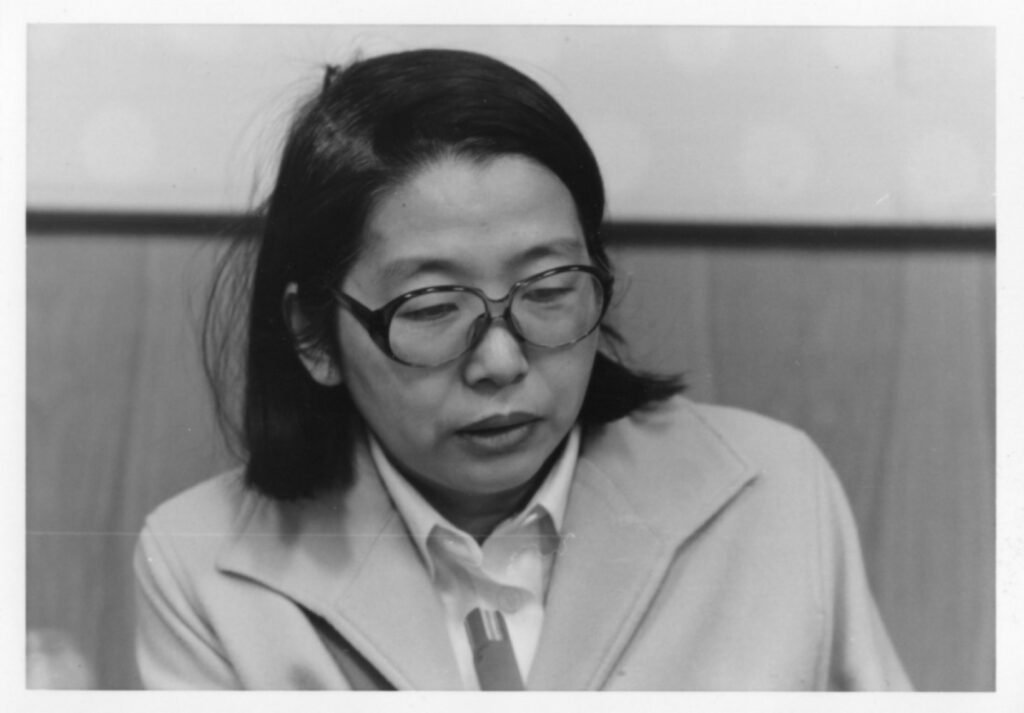
trans. Judy Halebsky & Ayako Takahashi
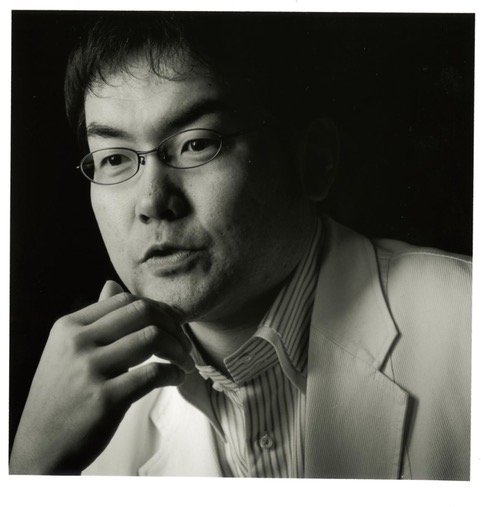
trans. Judy Halebsky & Ayako Takahashi
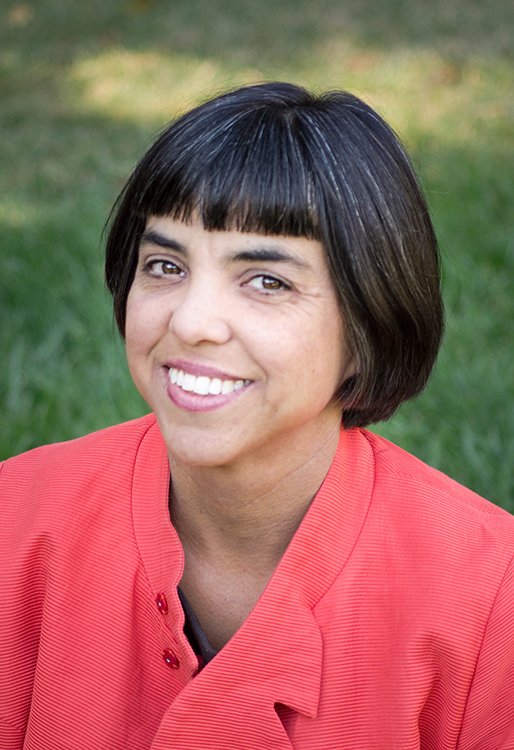
by Judy Halebksy
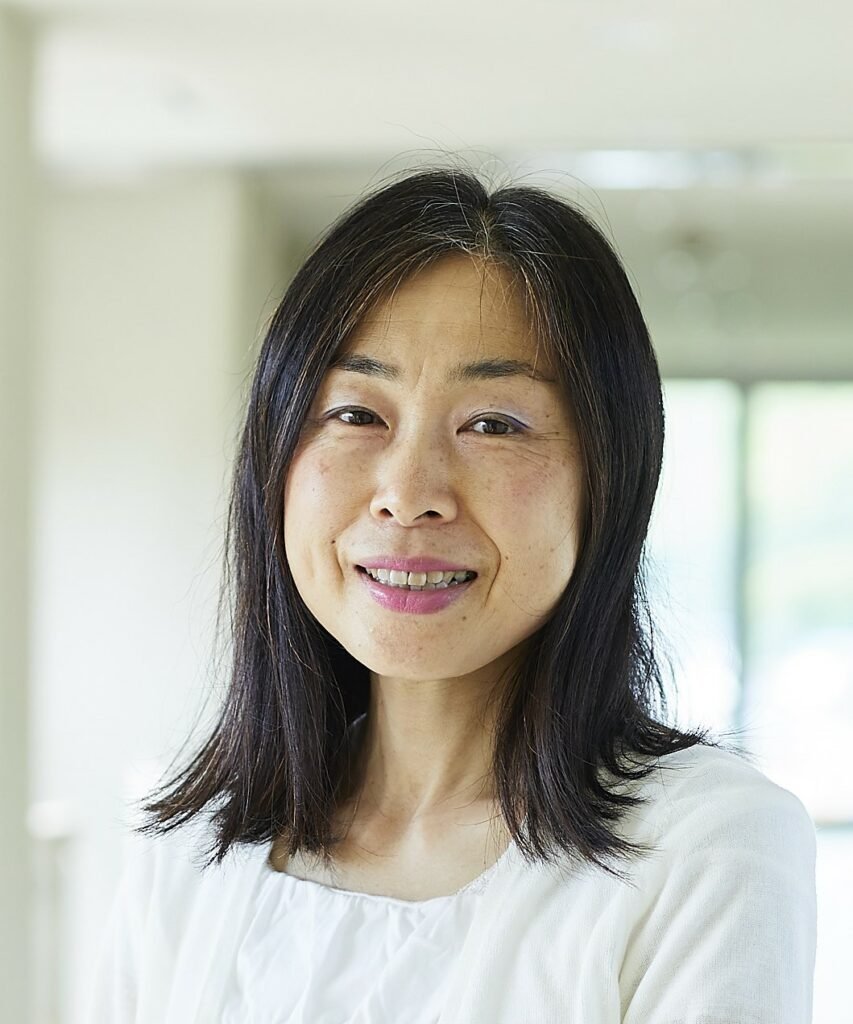
Ayako Takahashi
- Published in home, Monthly, Translation
INTRODUCTION TO KORA RUMIKO & WAGO RYOICHI by Judy Halebsky
THREE POEMS
by Rumiko Kora, trans. Judy Halebsky & Ayako Takahashi
FIVE POEMS
by Ryoichi Wago, trans. Judy Halebsky & Ayako Takahashi
This folio shares recent translations from two Japanese poets, Kora Rumiko (1932-2021) and Wago Ryoichi (1968-). Kora’s poems are from the second half and 20th century, and Wago’s were written following the 2011 earthquake, tsunami, and nuclear meltdown that devastated his home region. Writing in different times and from different perspectives, these poets overlap in that their writing draws attention to environmental degradation and inequality while simultaneously voicing a strong sense of place.
Kora was born and raised in Tokyo. Her childhood was shaped by the Second World War and the devastation of the Tokyo fire bombings that she witnessed as a thirteen-year-old. In the changes of the post-war era and the rapid industrialization of the 1970s, her neighborhood grew from a small community to a bustling urban area. Her writing speaks against capitalism and colonialism. At a time when many Japanese writers were influenced by European literary forms, Kora looked toward writers from Asia and Africa, all while drawing inspiration from mythology, envisioning matriarchy, and speaking to the harms and costs of nuclear weapons and nuclear power.
These themes are evident in her poem, A Mother Speaks, which is set within the Noh play A Killing Stone (Sesshôseki). Noh is a somber, serious theatre tradition that has been in living practice for more than six hundred years. Plays often have themes of connecting the dead with the living and of vanquishing evil spirits. A Killing Stone references the legend of the fox spirit and Lady Tamamo’s attempt to use her supernatural power to kill the emperor. As the story goes, her plans fails and her spirit is relegated to a stone that kills any living thing that passes over it. Kora’s poem envisions Tamamo’s power, fertility, and the potential of transformation, offering an embodied, feminist perspective on the Noh play and the legend more broadly.
Wago is a high school teacher and has lived in Fukushima prefecture his whole life. In March 2011, when the Fukushima Daiichi nuclear powerplant failed, he did not evacuate, but sheltered in place in his apartment in Fukushima City, 50 miles away from the powerplant. He started a Twitter feed of thoughts and observations, which soon had thousands of followers. Pebbles of Poetry 1, from Macrh 16, 2011, marks the very beginning of his posts and the moment when people were just becoming aware of the radiation leaks. On several occasions, Wago visited areas inside the evacuation zone, a 12-mile radius of the power plant. He wore a protective suit and a radiation monitor. His poem Screening Time was written after one of those visits. Wago’s writing addresses environmental degradation with an ecopoetics that not only explores the human toll of this catastrophe, but also includes the perspectives of cows abandoned in the fields; the fruits and crops left to waste; the once vibrant towns that now stand empty; and the soil, the ocean, and the air.
January 7, 2021, is one of a series of poems that Wago wrote marking ten years since the nuclear meltdown. It voices a more composed perspective on the memories and experiences of his earlier writings. It opens with a description of flying above the evacuation zone and includes a conversation with a dairy farmer forced to evacuate the area and abandon his herd. The poem integrates quotes from Wago’s twitter feed on March 22, 2011 in the first days following the meltdown; contextualizing, in this way, the original posts, integrating them with images and details to create an immersive sense of presence. Much of Wago’s work is dedicated to restoring Fukushima prefecture, not just in terms of environmental restoration, but also of the culture and lifestyle of the region and the well-being of future generations.
Ayako Takahashi and I have translated these poems collaboratively, working together weekly over video chat since 2017. Ayako tends to favor a more literal translation, while I am often most concerned that the translations work as poems. Our hope is that we have landed someplace in the middle, maintaining with fidelity the vitality of the original works.
- Published in Interview, Monthly, Translation
FOUR POEMS by Ryoichi Wago, trans. Judy Halebsky & Ayako Takahashi
Wago, Ryoichi. Since Fukushima. Trans. Judy Halebsky & Ayako Takahashi. Vagabond Press, 2023. Print.
Purchase the book here.
Screening Time
November 26th, 2011
—exiting the restricted area, a 20 km radius of the power station
screening palms
screening the back of my hands
screening with my hands up
screening with my hands down
screening over my head
screening the back of my head
screening the sole of my left shoe
screening the sole of my right shoe
screening my entire body
screening what is outer space
screening what is a hometown
screening what is life
screening what is radiation
to us
what is most precious
what cannot be measured
You
(no date)
precious
you
what are you
doing now
you are me
I am you
from the obsidian depths of night
it’s you I am thinking about
and for me
from me
you
I won’t give up on
for you
I won’t give up
JANUARY 7th, 2021
I swooned
reeled
reeling.
it was spring, one year after the disaster.
I boarded a helicopter and traveled into the restricted zone,
the 20 km surrounding the nuclear power station,
high above, looking over the land below.
from a perfectly kept beach,
we crossed into the forbidden sky,
as though we were trespassing.
the land left just as it was that day.
huge, concrete wave-breaks strewn on the beach.
houses, cars, and boats hit by the tsunami, scattered everywhere.
mud and stones spread across roads and fields, electric poles keeled over.
dogs chained at front doors and left behind….
time stopped.
no.
time doesn’t exist.
I remembered that.
dizzy. still now.
could be. the aftershocks.
which continue even now, I think.
the other day, I heard a story
from a dairy farmer living within 20 km of the power station.
“the cows were so hungry
there were teeth marks all through the barn and along the fences.
until the end, trying to find something to eat.
they wasted to skin and bones then fell over…”
*
“tomorrow, what will you be doing? tomorrow, like today, getting by. an aftershock.
tomorrow, what will you be doing? tomorrow, like today, standing here. an aftershock.
a local broadcaster says, now everyone has heard of Fukushima. if we can recover, it’s an opportunity for us, he says. we’re known all over the world. an aftershock.
we clung to hope. tried to be grateful. is there a reward? maybe. but.
our families and our roots are here. famous around the world? I’ll burn the map.
an aftershock.
it’s calm. the night air, radiation. an aftershock.”
(March 22, 2011)
PEBBLES OF POETRY
Part 1: March 16th, 2011, 4:23 am —March 17th, 2011, 12:24 am
Such a huge catastrophe. I was staying at an evacuation center but I’ve now pulled myself together and returned home to work. Thank you for worrying about me and encouraging me, everyone.
March 16th, 2011. 4:23 a.m.
Today, it is six days since the earthquake. My way of thinking has completely changed.
March 16th, 2011. 4:29 a.m.
I finally got to a place where all I could do was cry. My plan now is to write poetry in a wild frenzy.
March 16th, 2011. 4:30 a.m.
Radiation is falling. It is a quiet night.
March 16th, 2011. 4:30 a.m.
This catastrophe is so painful, and for what?
March 16th, 2011. 4:31 a.m.
Whatever meaning we can find in all this might come out in the aftermath. If so, what is the meaning of aftermath? Does this mean anything at all?
March 16th, 2011. 4:33 a.m.
What does this catastrophe want to teach us? If there’s nothing to learn from this, what should I believe in?
March 16th, 2011. 4:34 a.m.
Radiation is falling. A quiet quiet night.
March 16th, 2011. 4:35 a.m.
I was taught, “wash your hands before coming in the house.” But there isn’t any water for us to use.
March 16th, 2011. 4:37 a.m.
Relief supplies haven’t arrived in Minamisôma. I’ve heard that the delivery people don’t want to enter the town. Please save Minamisôma.
March 16th, 2011. 4:40 a.m.
For you, where do you call home? I’ll never abandon this place. It’s everything to me.
March 16th, 2011. 4:44 a.m.
I’m worried about my family’s health. They say that this amount of radiation won’t affect us very soon. Is “not very soon” the opposite of “soon”?
March 16th, 2011. 4:53 a.m.
Well, yes, there’s clearly a border between fact and meaning. Some say that they are opposites.
March 16th, 2011. 5:32 a.m.
On a hot summer day, I like to go to a beach on the Minami-sanriku coast. On that exact spot, the day before yesterday, a hundred thousand bodies washed ashore.
March 16th, 2011. 5:34 a.m.
In a quiet moment, when I try to understand the meaning of this catastrophe, when I try to see it clearly there’s nothing, it’s meaningless, something close to darkness, that’s all.
March 16th, 2011. 10:43 p.m.
Just now, while writing, I heard a rumbling underground. Felt the tremors. I held my breath, kneeled down, and scowled at everything swinging. My life or this tragedy. In the radiation, in the rain, no one but me.
March 16th, 2011. 10:46 p.m.
Do you love someone? If it’s possible that everything we have can be lost in an instant, then all we need to do is to find some other way not to be robbed by the world.
March 16th, 2011. 10:52 p.m.
The world has repeated both its birth and death, sustained by some celestial spirit which defies all meaning.
March 16th, 2011. 10:54 p.m.
My favorite high school gym is being used as a morgue for unidentified bodies. The high school nearby, too.
March 16th, 2011. 10:56 p.m.
I asked my mother and father to evacuate but they couldn’t stand to leave their home. “You should go,” they said to me. I choose them.
March 16th, 2011. 11:10 p.m.
My wife and son have already evacuated. My son calls me. As a father, do I have to decide?
March 16th, 2011. 11:11 p.m.
More and more people are evacuating from this town. I know it’s hard to leave. You can do it.
March 16th, 2011. 11:39 p.m.
Having evacuated to a safe place, the young man, twenty-something, is looking at the monitor and crying, “Don’t give up on our dear Minamisôma,” he says. What’s the sense of things in your hometown? Our hometown now, overcome with suffering, faces distorted by tears.
March 16th, 2011. 11:48 p.m.
Again, big tremors. The aftershocks we were expecting finally came. I was wondering if I should shelter under the stairs or just open the front door. Outside, in the rain, radiation is falling.
March 16th, 2011. 11:50 p.m.
The gas is on empty. Out of water, out of food, out of my mind. Alone in this apartment.
March 16th, 2011. 11:53 p.m.
A long rolling tremor. Let’s place our bets, do you win or do I win? This time I lost but next time, I’ll come out fighting.
March 16th, 2011. 11:54 p.m.
Until now, we carried on the daily lives of generation after generation, we searched for happiness, sincerity, I think.
March 16th, 2011. 11:56 p.m.
My elderly neighbor gave me a box full of onions. He grew them himself. Sadly, I’m not much for onions. The box sits in the entryway, I stare at it silently. A few days ago, I was living my ordinary life.
March 16th, 2011. 11:59 p.m.
12 am. Six days since the disaster. A sick joke! Six days since and for five days, I’ve wanted this all to be fixed.
March 17th, 2011. 12:03 a.m.
In the kitchen. Cleaning up scattered, broken dishes. Aching as I put them one by one into the garbage. Me and the kitchen and the world.
March 17th, 2011. 12:05 a.m.
No night no dawn.
March 17th, 2011. 12:24 a.m.
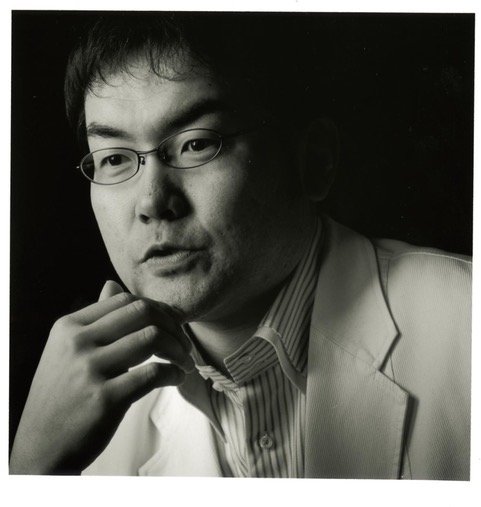
Ryoichi WAGO (1968–) is a poet and high school Japanese literature teacher from Fukushima City, Japan. In 2017, the French translation of his book, Pebbles of Poetry, won the Nunc Magazine award for best foreign-language poetry collection. Since March 2011, his writing has focused on the ecological devastation of the areas affected by the Tôhoku earthquake, tsunami, and the nuclear meltdown of the Fukushima Daiichi power station. Choirs across Japan sing his poem Abandoned Fukushima as a prayer for hope and renewal.
Ayako Takahashi and Judy Halebsky work collaboratively to translate poetry between English and Japanese.
Ayako TAKAHASHI is a scholar and translator teaching at University of Hyogo in Japan. Her recent scholarship includes the books Ambience: Ecopoetics in the Anthropocene (Shichosha, 2022) and Reading Gary Snyder (Shichosha 2018). She has published translations of many American poets such as Jane Hirshfield, Anne Waldman, and Joanne Kyger, among others (Anthology of Contemporary American Women Poets, Shichosha 2012).
Judy HALEBSKY is a poet. She is the author of Spring and a Thousand Years (Unabridged) (University of Arkansas Press, 2020) Tree Line (New Issues 2014) and Sky=Empty, winner of the New Issue Prize (New Issues, 2010). She has also published articles on cultural translation and noh theatre. She is a professor of Literature and Language and the director of the MFA program at Dominican University of California. Ayako and Judy have been working together for several years and have previously published articles in ecopoetry and English language haiku.
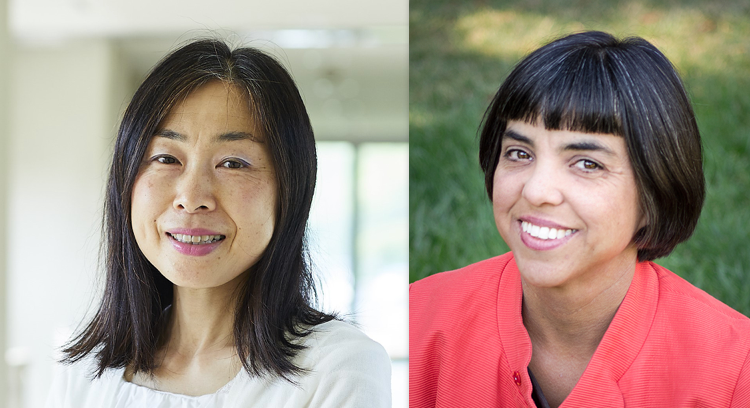
- Published in Featured Poetry, Monthly, Poetry, Translation
THREE POEMS by Rumiko Kora, trans. Judy Halebsky & Ayako Takahashi
Alive, the wind
lifts seeds
and carries them away
spider eggs hatch and depart on the wind
over years the wind breaks down plants into soil
we are of the wind and all of our senses
the wind breathing
through us
Within the Trees, A Universe
-Sacred Forest of Kinabatangan, Malaysia
people listen to the trees speak
the trees heard the people
there is light in the woods there was darkness
both life and death
there are voices and so there was silence
within the woods a universe
within the trees a human becomes human
A Mother Speaks
After seeing the noh play, A Killing Stone, Sesshôseki
the play starts in Nasuno province
on the stage there’s a thick purple silk cloth
covering a stone that was dropped
over a field like a cracked rotten egg
a bird flies over the stone and drops
dead to the ground, any living thing, person
or animal that touches that stone dies
a village woman tells the story of this terrifying stone
it starts with her failed attempt to take the emperor’s life
which left her spirit captured within the stone
that now casts spells on the living
when the stone splits open
the village woman appears as a ghost
and the dead return hatching through the stone
pulsing with energy stronger than even the living
the woman’s blaring red rage steadies
and fades to a pale color
the stone again becomes an egg
the defeated become the victors
the lost become found the dead revive
she speaks, the years steal from us
we are robbed of our eggs and escape to the wilderness
we give birth to stone children
hold them in our arms warming the stone
abreast of the thieves who stole our eggs
her ghostly feet glide stamp the ground
a voice within the mask scolds us
echoing from another world
will you be ruled by this bearing always
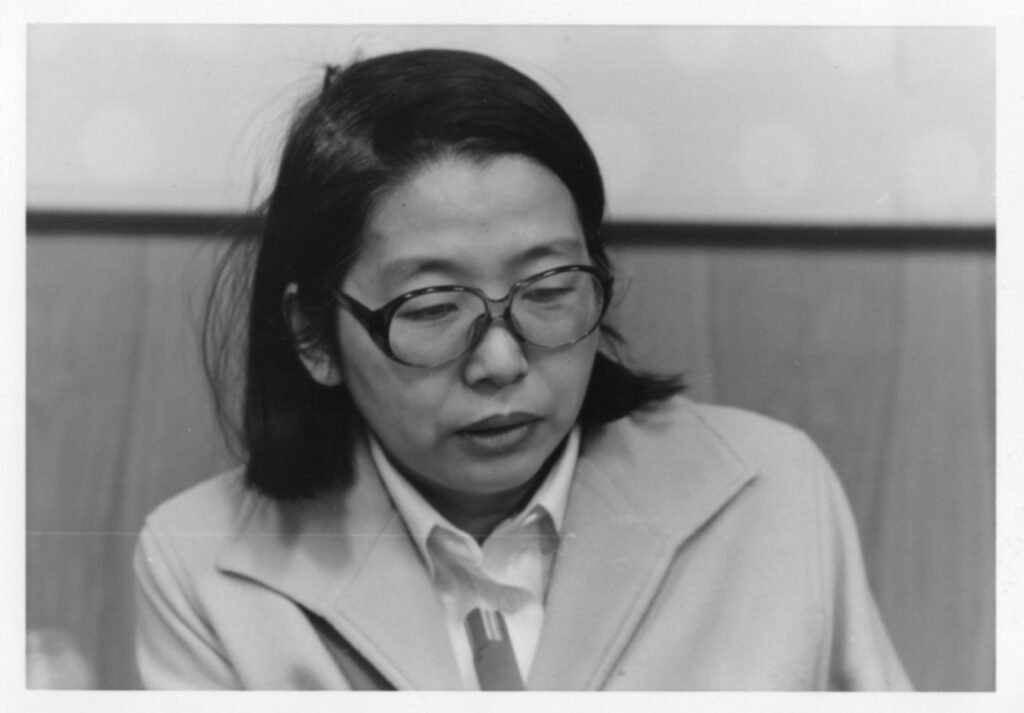
Rumiko KORA (1932-2021) was a poet, translator, and critic born and raised in Tokyo. Her book The Voice of a Mask won the Contemporary Poetry Prize in 1988. She also wrote essays and novels and co-translated an anthology of poetry from Asia and Africa. She devoted herself to promoting women’s work and was instrumental in establishing the Award for Women Writers. Much of her writing focuses on identifying the struggles and contradictions of a female gender identity.
Ayako Takahashi and Judy Halebsky work collaboratively to translate poetry between English and Japanese.
Ayako TAKAHASHI is a scholar and translator teaching at University of Hyogo in Japan. Her recent scholarship includes the books Ambience: Ecopoetics in the Anthropocene (Shichosha, 2022) and Reading Gary Snyder (Shichosha 2018). She has published translations of many American poets such as Jane Hirshfield, Anne Waldman, and Joanne Kyger, among others (Anthology of Contemporary American Women Poets, Shichosha 2012).
Judy HALEBSKY is a poet. She is the author of Spring and a Thousand Years (Unabridged) (University of Arkansas Press, 2020) Tree Line (New Issues 2014) and Sky=Empty, winner of the New Issue Prize (New Issues, 2010). She has also published articles on cultural translation and noh theatre. She is a professor of Literature and Language and the director of the MFA program at Dominican University of California. Ayako and Judy have been working together for several years and have previously published articles in ecopoetry and English language haiku.
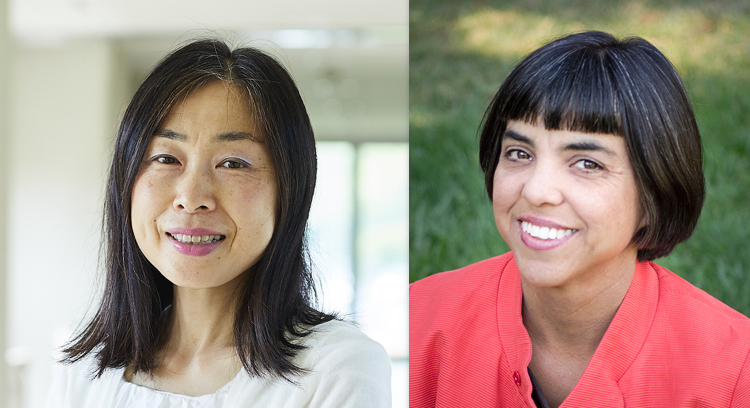
- Published in Featured Poetry, Monthly, Poetry, Translation
SONG FOR AMERICA by Jacques Viau Renaud trans. Ariel Francisco
America, sitting atop the night’s shoulders
singing in the faces of the hungry
deciphering the language of sadness
measuring the modulation of hatred in our children’s stomachs.
America, they’ve stolen your joy
destroying the muscles in your face
tied your heart to the vigil
where thousands of beings wander
inhabited by death,
a death we drag since men, from beyond,
buried his sword, before your name on this earth.
And the dirt
and the mold
and the mud
of our sun-threshed life.
America, get up America
shake off the dust and rust inside you.
America reborn
reborn America
American men,
American women and children
listen to the tremor rumbling from the Antilles
from that stone peak giving birth
to the voice of a child singing from a tiny island
from the hammering of the scaffold
whose shoulders are built from the blows of cackles
and courage
the pure orb of “American love.”
Listen
a new howl fills the sails of America
dragged by the enemies of man
capitalists,
proxies of the temples and Bibles
in the courts of peace and death
so the truth does not burn Bolivia into thirst,
strangled with a clay cord
the heir of the Inca’s
dead on an eternal bonfire
so the light won’t awaken the sleeping quetzal
atop the ruins of aboriginal silence,
to Chile, long and vibrant,
a spear pierced through the heart of an Araucanian;
to Central America
massacred by dynamited bananas,
to Venezuela
where the capital houses their steepest gallows
and the hosts of love are an impenetrable bastion.
To Brazil with large land and few people
adorning their rags with diamonds
tears on the soldiers lapels
while in Argentina and Paraguay
blood clots hang from the commanders medals
and from chimneys rise the stench of crushed meat.
Oh America!
Now without sail
without compass
bent from hunger
bitter fruit fallen
from a shadeless tree
under whose ruined structure
the American licks the back of sadness.
Oh America!
Piece of the dissected chant,
America, America,
reborn America
burdened men of America
light your bonfires
and march towards the light that guards history.
March
inheritors of blood
Colombian cowboys
with their enormous stomachs
where sunflowers bloom.
Natives of Peru
and Ecuador sleepy with coca
raise the ancient face of purity
and tell your secrets.
And you, Puerto Rico
nailed to the jaws of hatred
small lump of sugar plagued by vermin
slow assassination
crushed between masses of metal and glass.
Oh Puerto Rico
I love you more than any other American homeland
because you permanently inhabit the cry
I love you
I love you
I love you from Santo Domingo
dismembered corpse
shout parted in two
but born of a single throat
from a single anguish,
alone.
Oh America
piece of the dissected chant
with a luminous morning
built by the guerillas of love
who have their widest smile in Cuba.
Oh America
for you so many men fight
for you they die
how much love must be housed
to die for you
for an America not yet born
and won’t be for some time.
Americans of the new gospel
hold in your hands
our heart’s clamor
raise high our cry
tighten the knots that tie us to tenderness
the infant dawn of a smile
tied with your veins
wet with your blood
purified by your cry.
Americans of the new gospel
raise high our cry
so it survives the flood
because it will give birth to generations of happiness
an ample mankind
large as the smile of the proletarian sunrise
forever seedlings of vigor
of spilled love
while life edifies
over the debris of a past life.
Americans of 1963, of this century
evangelizers of the new world
raise your heads
raise them high
to see from afar this land that constitutes our future.
With our remains:
with our hands and bones
with our organs,
with all our being,
with this burdened life,
built to survive,
see it
and do not faint
because we are tomorrow’s fire
the eternal youth
the gesture of those who love
giving everything
taking everything
for this life submerged in your voices.
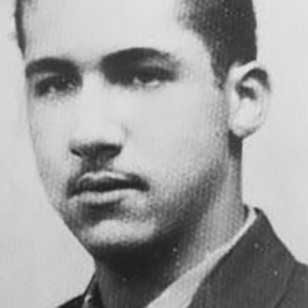
Jacques Viau Renaud (1941—1965) was born in Haiti and raised in the Dominican Republic following his father’s exile in 1948. During the Dominican Revolution of 1965, he joined the rebel forces in support of ousted president Juan Bosch, fighting against the US backed dictatorship. He was killed in battle at age 23.
- Published in ISSUE 28, Translation
THE PIER by Judita Vaičiūnaitė trans. Rimas Uzgiris
Your torn white shirt lies
drying on the anchor.
In the hush of my cheek
I feel your gypsy hair, while husky
voices echo across the water
and through night’s rusting gear.
Palms timidly touch
the still aching secret scars.
Dawn breaks, and in its light
I can see your heart in your eyes,
waiting for me like treasure received…
O dawn – of boundless brutality and beauty!
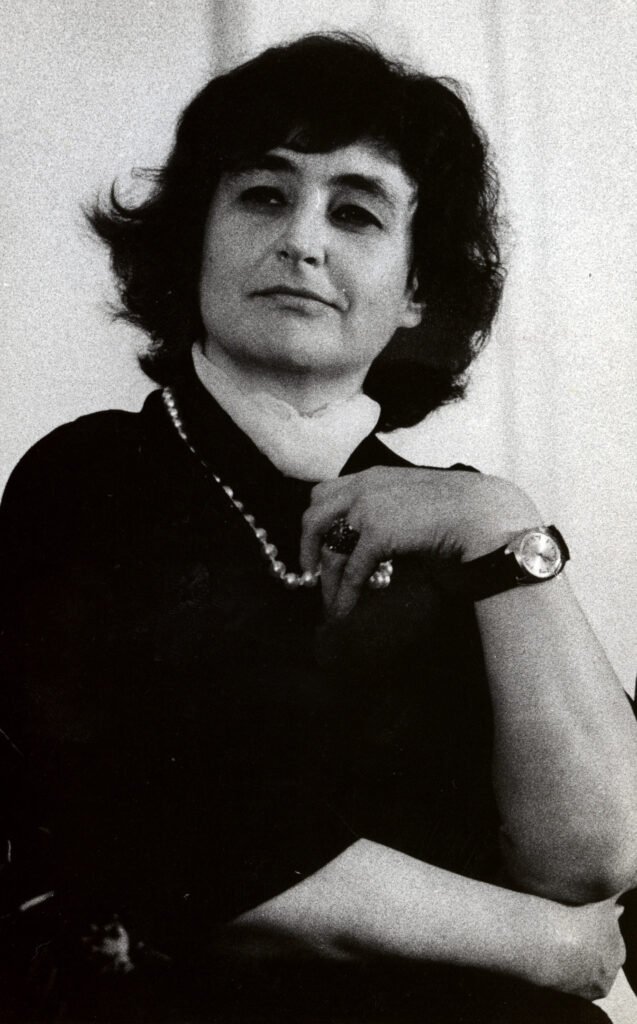
Judita Vaičiūnaitė (1937-2001) was one of Lithuania’s leading poets of the second half of the twentieth century. She graduated from Vilnius University in 1959, and spent most of her life in Vilnius. She published over twenty books of poetry, as well as translations of poetry, poetry books for children, and plays. She worked as an editor for several leading literary journals in Lithuania. Her poetry has been translated into English, German, Russian and other languages. Shearsman Books (UK) published a selection of her poems in 2018: Vagabond Sun. Her work has garnered numerous prizes, including the Lithuanian Writer’s Union Prize in 2000, and the national award of the Gediminas Cross in 1997.
- Published in ISSUE 28, Translation
TWO POEMS by Stefano d’Arrigo trans. Joe Gross
WHEN MEEK & THUNDEROUS
When meek & thunderous
spring makes its mooring
& the heart wanes in wax,
honeycomb homilies
flit from fin to wing
of migrant fish & birds
wearing whispers of your name;
we imagine you, because it’s true,
your destination, too, is mystery.
OH IN ITALY A MEMORY
Oh in Italy a memory of the women
who turtledove-strut the windowsills
suddenly thresh their thighs
pulverizing poppies in secret
red petals of their Saracen dresses
fluttering like lustful oriflamme
in defense of the footsteps scrawled
over the island’s wind-worn cobbles.

Stefano D’Arrigo (b. 1919, d. 1992) was born and raised in Alì Terme, Messina, Sicily, but lived and worked in Rome as an art critic much of his life. He is the author of the poetry collection Codice siciliano (Sicilian Code, 1957), the epic Horcynus Orca (1975), the novella Cima delle nobildonne (Noblest of Noblewomen, 1985), and Il licantropo e altre prose inedite (The Lycanthrope and Other Unedited Prose, 2010), and played a minor role in Pier Paolo Pasolini’s 1961 directorial debut, Accattone.
- Published in ISSUE 28, Translation
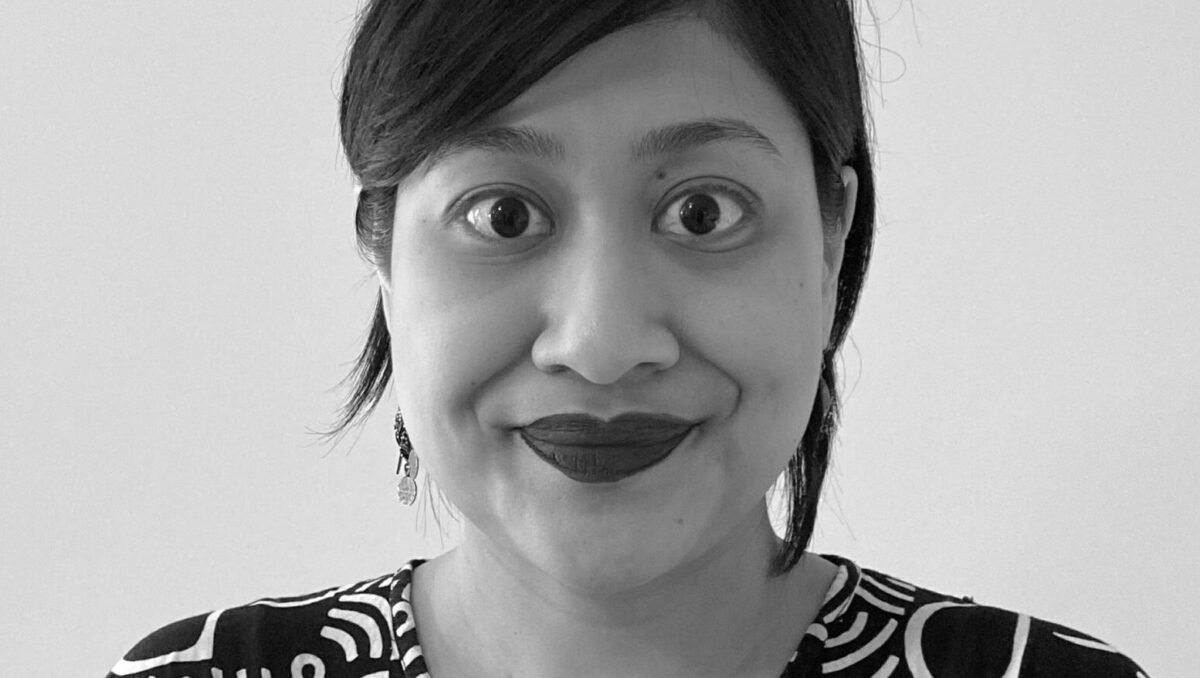
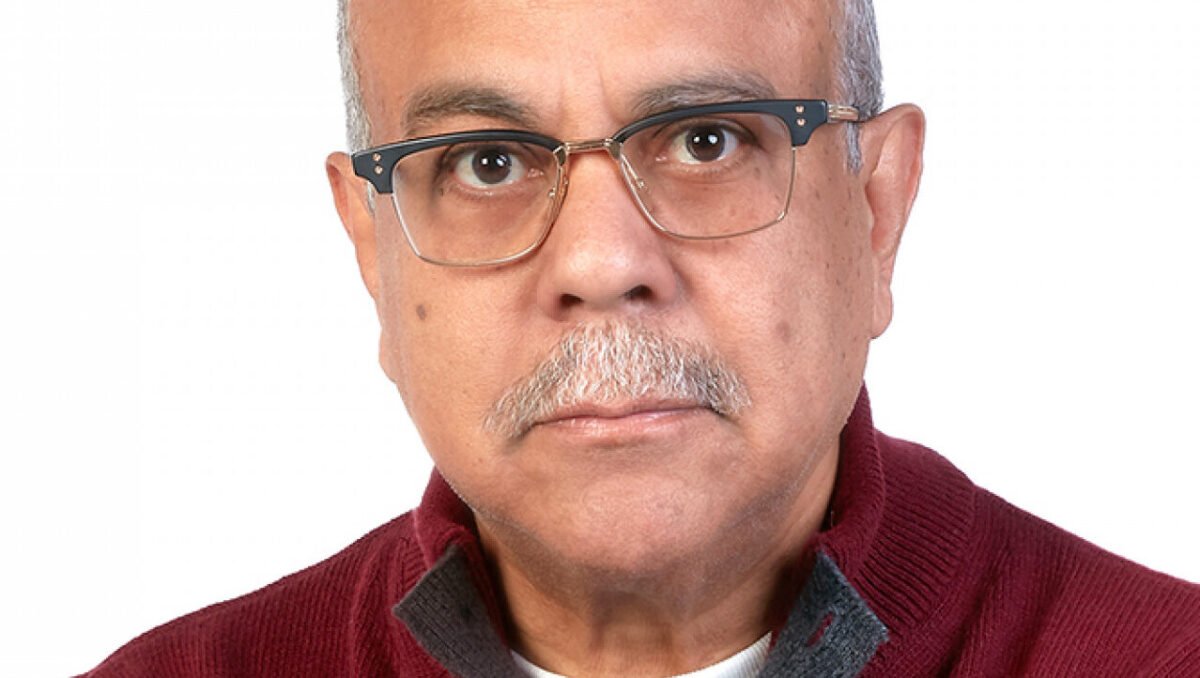
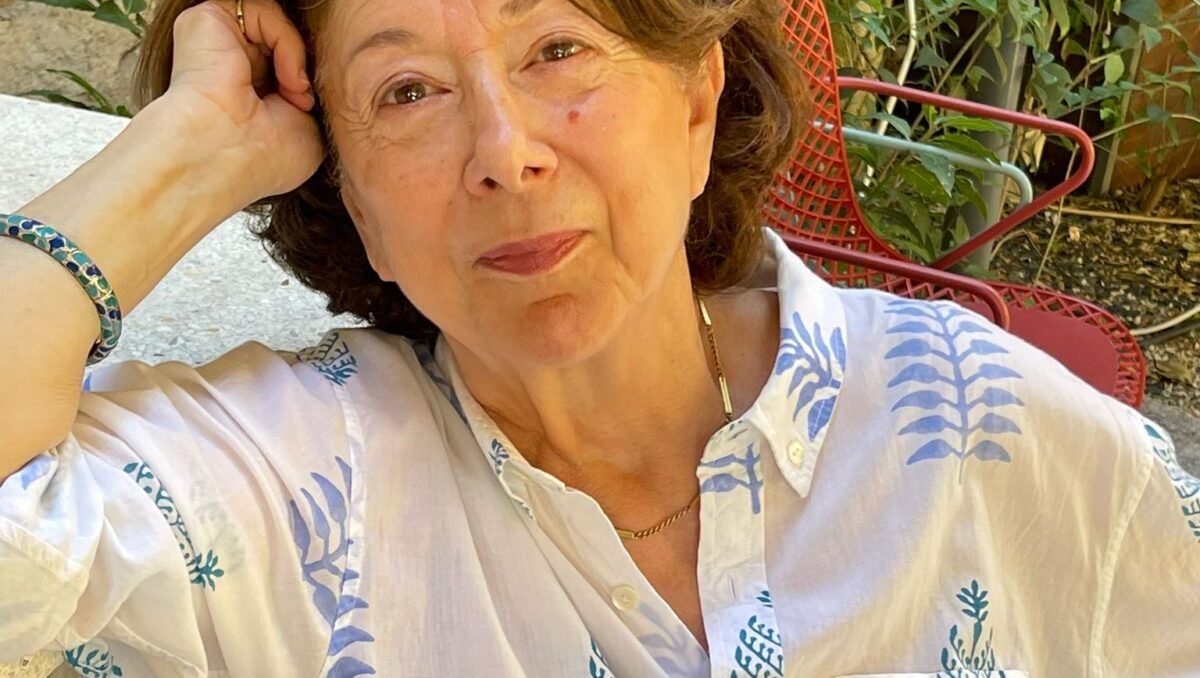
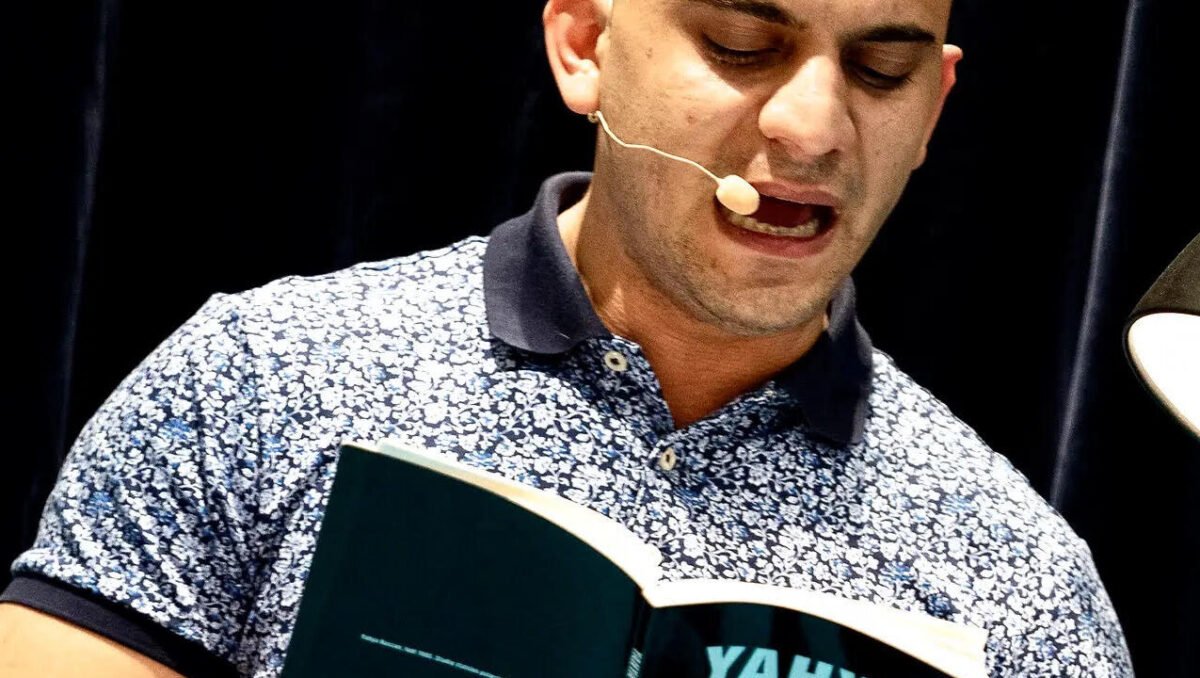
 J
J